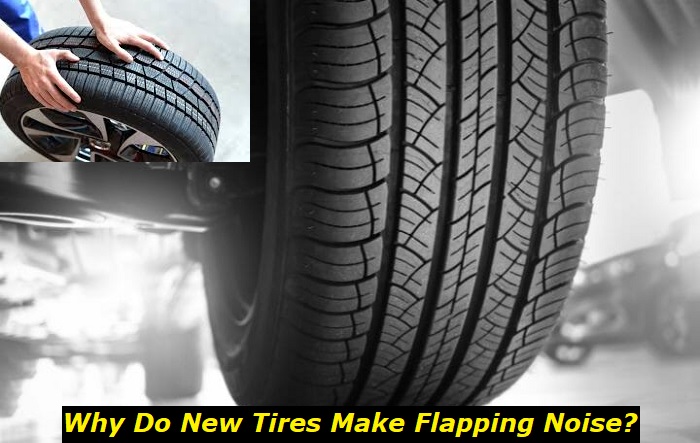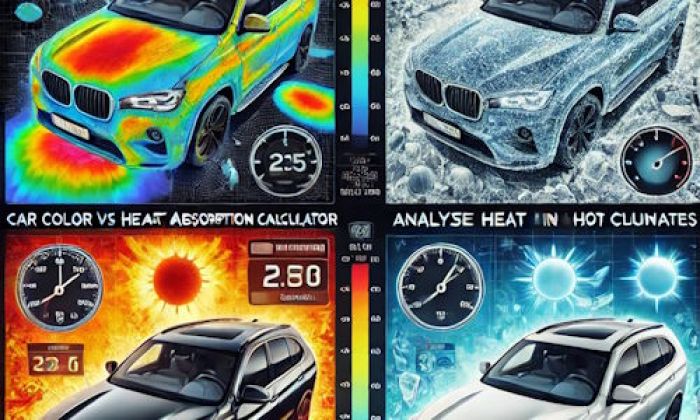While driving, it is important to keep your eyes on the road but also have your ears keen on the sounds being generated by your car. This helps you to keep track of the general health of your car and avoid any issues that may prove risky to you and other road users. You may have just recently spent some money to purchase some new tires and notice some sounds coming from them when you hit the road.
It is more common to have old tires make flapping noises. You have just replaced worn-out tires but the new tires are making flapping noise - what's wrong with them? Read on as we discuss this issue and the solutions to it.

What Causes New Tires to Make Flapping Noises?
Your tires have just been recently replaced and they are new. However, you note that the new tires are making flapping noises. Whilst there are some usual flapping noises that new tires may make because they are yet to cover some distance, there are some flapping noises that are a cause for concern.
The following are some of the reasons that may cause new tires to make flapping noises:
1) Wrong Tire Type and Size
When you have installed new tires that are mismatched or of the wrong type and size, they will not fit correctly, This leads to flapping noises. It is best to get tires that are specifically recommended for your vehicle.
2) Improper Inflation
To get a car moving with ease, the tires ought to be properly inflation. It is important that you apply the correct pressure that matches the per square inch (PSI). Follow the recommended instructions set by your vehicle's manufacturer.
Underinflation leads to flapping sounds and uneven wear. Overinflation of the tires poses risks such as blowouts.
3) Misaligned Wheels
The tires may have not been properly installed and balanced. When car wheels are misaligned, this eventually leads to uneven tire wear. This then leads to the flapping noise coming from the tires, even if they are new.
4) Damaged Tire
There are some unfortunate instances whereby new tires may get damaged. This will then lead to the flapping noises coming from the new tire.
5) Worn Out Components
The tires may be new but there may be some worn out or damaged parts that may lead to issues, causing the flapping noises. When components such as bolts, lug nuts, and suspension parts are worn out, this may cause various wheel issues, leading to the flapping noise coming from new tires.
6) Foreign Objects
There may be a foreign object that has attached itself to the tire, causing it to make flapping noises. Sharp objects may also cause flapping noises because they reduce the inflation of the tire.
Distinguishing Tire Noises
There are different types of tire noises. It is best that get to distinguish the usual and unusual sounds. By being able to know unusual noises, you will be able to take action swiftly so as to avoid further damage or being exposed to risks. The following are the different types of tire noises:
- Normal tire noise:This is caused when the tire contact makes contact with the ground surface when moving.
- Abnormal tire noise:This is an unusual noise that the tire makes and it sounds like flapping, squeaking, or squealing, and excessive vibrational sounds.
Generally, vibrational sounds are emitted when there are loose parts. This can also be the case due to cupping or when the tire treads are unevenly worn out. Squealing noises are usually more pronounced when turning corners and are caused by poor wheel alignment or poor inflation of the tires.
Aside from being able to detect the type of noise that is coming from your tires, it is also good to note the frequency with which you can hear them. This helps in being able to narrow down the issue so you can take necessary action.
Solutions to New Tires Making Flapping Noise
You may have been looking forward to smooth rides but then hit a snag when the new tires make flapping noises. However, for every problem, there is a solution. Here are some fixes that can make the flapping noise from new tires go away:
1) Proper Wheel Alignment
The new tires may have not been installed properly and the flapping noise is an indication that there is an issue. To get this fixed, have the wheels properly aligned. This also gives you an additional benefit of a longer useful timespan for the tires.
2) Proper Tire Installation
If you notice that the new tires are not properly installed, you will have to go to a tire shop to get this issue fixed. Having the tires properly installed and balanced with the lug nuts tightened correctly, the flapping noises should disappear.
3) Tighten Components
When the tire components are not held firmly in place, they are bound to be loose and this creates the flapping noises. To fix an issue whereby the components and lug nuts are loose, inspect and tighten them. This will do away with the flapping noises and offer you a safe driving experience.
4) Tire Replacement
If it is an unfortunate case whereby a foreign object is attached to the tire, you will have to inspect the tire. You can remove the object to stop interference on the tire. If it is an unfortunate case whereby the object causes damage to the tire, you will have to change and replace the tire.
While it may be quite an inconvenience to have a new tire get damaged shortly after purchasing it, it is best that you repair or replace it. Delaying this may expose you to risks sooner rather than later.
5) Component Replacement
There may be parts and components that are worn out and faulty, causing the tire not to be in a good position. This then brings about the flapping noises. To fix this, replace the faulty parts so as to have the new tires function at their best and extend their useful life.
Tires Selection, Care and Maintenance
While the usual wear and tear is expected after you purchase new tires, you can maintain the tires to get a longer useful life. Getting brand new tires can be a costly thing but you can maximize the benefits this brings about and lengthen the useful life by ensuring you maintain and care for your tires. This can be done by doing the following:
1) Purchase Right Tires
It is best to get things right, right from the point of purchase. Select the right tires for your vehicle and the conditions in which you are to drive. Choose tires that are of good quality and will provide you with high and reliable performance.
When selecting tires, choose the ones that your vehicle manufacturer recommends. If you use different tires, they will lead to flapping noises since they have different thread patterns. Different types of tires are used for specific seasons or terrains, and it is best that you use one that suits your car and the task it is to handle.
2) Tire Maintenance
To keep the tires in good condition, you ought to care for them and schedule regular maintenance checks. During these checks, ensure that the following is done:
- Wheel alignment.This prevents the wear of the tire and subsequently, the flapping noises.
- Tire pressure.Ensure that the proper tire pressure is applied as tires that are underinflated usually have noises.
Frequently check your tires to ensure that they are in good condition. Check if there are any signs of wear and tear. These may be in the form of tread separation, uneven tread depth, and bald spots.
When inspecting your tires, you ought to check on the tread, looking for any damage, foreign objects, or irregularities. An important action to include in the maintenance of your tires is wheel rotation, which should be done every 5,000 to 8,000 miles. This prevents excessive wear of the tires.
3) Proper Inflation
To avoid flapping noises that are caused by having the incorrect tire pressure, ensure that your new tires are correctly inflated. By inflating them to the correct PSI, they will function optimally and the flapping noises will be eliminated.
Conclusion
It is best to ensure that your car is in good condition. Getting new tires is one of the actions that you can take to maintain your car and avoid various risks. When new tires are making flapping noises, it is a cause for concern and you need to check on the issue.
New tires making flapping noises may be an indication that the tire selection, wheel inflation, or installation was poorly done. It could also point you to issues on other components such as lug nuts or suspension parts that are loose, worn out, or damaged.
By following this guide, you will be able to detect and solve the issue. Drive safely and keenly, while still being all ears to be able to note any flapping noises. By having good tires, you will get to enjoy smooth journeys.
About the authors
The CarAraC research team is composed of seasoned auto mechanics and automotive industry professionals, including individuals with advanced degrees and certifications in their field. Our team members boast prestigious credentials, reflecting their extensive knowledge and skills. These qualifications include: IMI: Institute of the Motor Industry, ASE-Certified Master Automobile Technicians; Coventry University, Graduate of MA in Automotive Journalism; Politecnico di Torino, Italy, MS Automotive Engineering; Ss. Cyril and Methodius University in Skopje, Mechanical University in Skopje; TOC Automotive College; DHA Suffa University, Department of Mechanical Engineering






Add comment